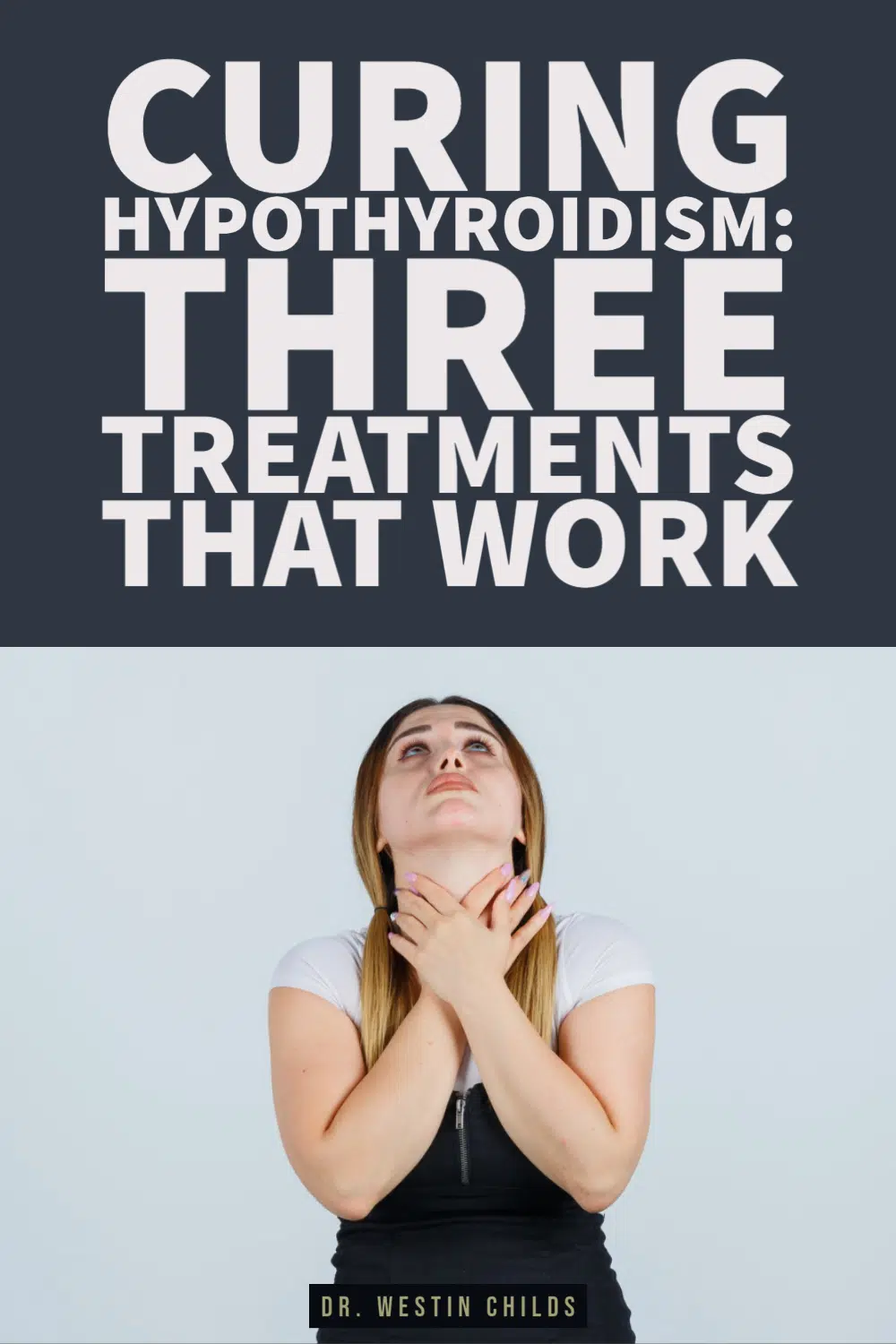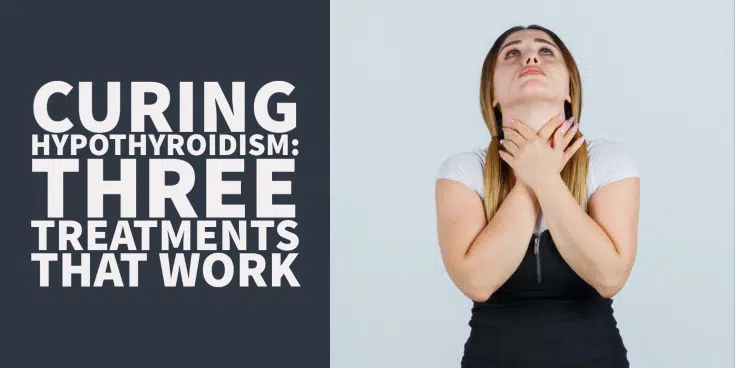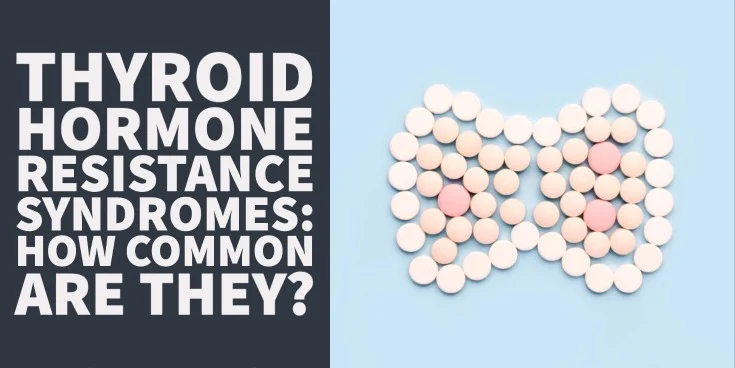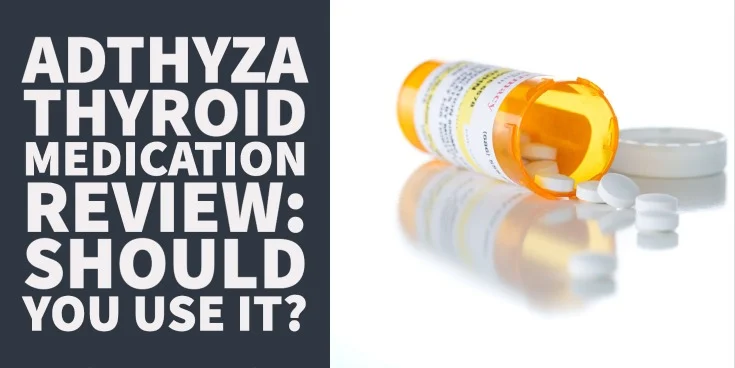Almost everyone with hypothyroidism will wonder at some point in time whether or not their condition is curable.
What do I mean by curable?
I mean that the condition can be treated to the point that it completely disappears and you are back to normal.
Can this actually happen?
The short answer is maybe.
The long answer is probably not, but it depends on what actually causes it.
If you have hypothyroidism, and you want to potentially reverse your condition, then this article will give you all of the information you need. We will discuss when it is possible to cure hypothyroidism, when it isn’t, and other helpful information.
Understanding Hypothyroidism and What it Means
In order to better understand hypothyroidism, you really need to know what is causing your condition.
Why?
Because just knowing you have hypothyroidism doesn’t tell you anything about what is causing the condition.
If you know what is causing thyroid dysfunction in your body then you can skip down to the bottom section and find out if your condition is reversible or not.
If you aren’t sure, then you probably want to stick around while we talk about some basics here.
So what exactly is hypothyroidism?
Hypothyroidism is simply defined as a state of low thyroid function in your body.
This state of low thyroid function can be caused by a number of different conditions and each one has a different cause.
You can have low thyroid function because your thyroid gland itself is damaged or otherwise not able to produce thyroid hormone (this happens in conditions such as Hashimoto’s).
You can have low thyroid function because your pituitary is not sending the right signals to your thyroid gland (this happens in the pituitary or hypothalamic dysfunction).
You can also have low thyroid function if your thyroid hormone is not being activated in peripheral tissues or if your cells are ‘resistant’ to the hormone (this occurs in situations of high reverse T3 and/or thyroid resistance).
All of these conditions result in the same problem… low levels of circulating thyroid hormone in the body and the symptoms of hypothyroidism.
But they all differ in one important way…
Whether or not they can be treated naturally and whether or not they can be cured.
DOWNLOAD FREE RESOURCES
Foods to Avoid if you Have Thyroid Problems:
I’ve found that these 10 foods cause the most problems for thyroid patients. Learn which foods you should avoid if you have thyroid disease of any type.
The Complete List of Thyroid Lab tests:
The list includes optimal ranges, normal ranges, and the complete list of tests you need to diagnose and manage thyroid disease correctly!
Treatment vs “Cure”
Important to this discussion is the idea of treatment versus a true ‘cure’.
When I refer to a cure in this article, what I mean is a complete reversal of thyroid dysfunction in your body.
This reversal will ideally take you back to normal thyroid function and health and completely remove your need for thyroid medication.
This idea needs to be differentiated from hypothyroidism treatment.
Hypothyroidism treatment can always be used to treat thyroid disease and it is usually very effective.
Many people don’t like the idea of being reliant upon thyroid medication, however, which is why they often seek a natural cure.
It’s important to realize that even if you can’t treat your specific thyroid issue with natural means, you always have the option of falling back on and using thyroid medication.
And this isn’t necessarily a bad thing either!
Remember:
Some causes of hypothyroidism are simply not reversible (I go into more detail about that below) which means that some of you will need to be on thyroid medication no matter what.
The good news is that thyroid medication is bio-identical (although it is synthetic) and it looks identical to the same hormones that your body produces naturally.
Hypothyroidism From Hashimoto’s Thyroiditis
The most common cause of hypothyroidism is caused by the autoimmune disease known as Hashimoto’s thyroiditis.
If you have this condition (there’s about a 70-90% chance that you do (1)) then your body is creating antibodies that are destroying your own thyroid gland.
If you leave this condition untreated for long enough it will eventually result in the destruction of your thyroid gland.
But what if you can catch it early? Is it curable at that point?
The answer is sometimes.
Not all cases of Hashimoto’s can be cured or reversed, but you may be able to slow down the disease’s progression and halt the destruction of your thyroid gland.
But, in order to do this, you need to catch it early.
If you don’t catch it early then you may reach some critical point where the destruction of your gland is permanent which means you will need to be on thyroid medication for the rest of your life.
Hashimoto’s is a little more complicated to treat than run-of-the-mill hypothyroidism, but you can certainly start with the therapies listed below (supplements, dietary changes, lifestyle changes, etc.).
You can also find more information on how to reduce your antibodies in this post where I share 5 of my favorite tips and tricks.
Hypothyroidism from Nutrient Deficiencies
This is probably the most ideal situation and one in which thyroid disease is readily curable.
What do I mean by nutrient deficiencies?
Your thyroid requires no fewer than 13 different nutrients in order to produce, activate, and utilize thyroid hormone.
A deficiency in any of these 13 nutrients may result in what I refer to as sub-optimal thyroid function.
This dysfunction can range anywhere from mild to severe depending on the degree and number of deficiencies that you are dealing with.
The most obvious example of this is iodine deficiency.
Iodine is required for the production of thyroid hormone in your thyroid gland.
If you don’t have sufficient iodine then your body can’t produce thyroid hormone and you will develop hypothyroidism (2).
Iodine deficiency is completely treatable, though, and replacing lost iodine will result in an improvement in your thyroid function very quickly.
Even though I am talking about iodine deficiency here the same thing can happen if you have zinc deficiency, selenium deficiency, and tyrosine deficiency.
Are nutrient deficiencies common?
Actually, yes.
Because your diet is the primary source of nutrients, it’s easy to see how processed foods can be devoid of the nutrients that your body actually needs.

When you couple this with soil depletion of nutrients (3), it sets up many people for sub-optimal nutrient deficiencies which can negatively impact thyroid function.
The good news is that this condition is readily treatable and reversible and all you need to do is replete the nutrients you are deficient in.
Serum testing (blood work) for nutrients is not always accurate, but you can take basic thyroid-enhancing supplements that contain all necessary vitamins to rapidly replete those you may be deficient in.
My recommendation would be to use a combination of supplements such as this one and this one which, together, contain all of the 13+ nutrients your thyroid requires for optimal function.
Hypothyroidism from Pituitary or Hypothalamic Damage
Your thyroid gland doesn’t produce thyroid hormone on its own.
Before it produces any hormone it needs to be stimulated by other organs. The organs responsible for telling your thyroid gland to produce hormones are the pituitary and the hypothalamus.
It’s possible that you have a completely normal thyroid gland that is capable of producing thyroid hormone but it’s not getting the right signals from your brain.
As we’ve discussed above, this condition will still result in hypothyroidism even though your thyroid gland remains completely normal.
Is this condition curable?
It depends on the extent of the damage to your pituitary/hypothalamus and what caused that damage.
Unfortunately, your brain tends to be a very slow healer. While it has been shown that some nerves can regenerate (at a very slow rate), they don’t heal anywhere near as quickly as the cells of your skin or intestinal tract.
In many cases, if you are suffering from hypothyroidism from brain-related injuries to your pituitary or hypothalamus then it’s unlikely that your condition will be curable.
Hypothyroidism after Thyroid Removal or RAI
Unfortunately, if you’ve had your thyroid removed or ablated with radioactive iodine then there is virtually no hope that you will be able to ‘cure’ your condition.
Why?
Because once your thyroid gland has been removed (or effectively completely destroyed) there’s nothing else you can do.
Your body is 100% reliant upon thyroid medication for survival and if your body can’t produce that hormone naturally then you must take it via a prescription medication such as levothyroxine, Synthroid, Armour thyroid, or Cytomel.
Sometimes it’s out of your control whether or not your thyroid needs to be removed.
For instance:
Thyroid removal is often recommended and required for the treatment of thyroid cancer.
It’s also frequently recommended for conditions such as extremely large goiters, thyroid nodules, and for hyperthyroidism.
If your doctor has recommended thyroid removal (also known as a complete thyroidectomy) then you’ll want to try and use all-natural options available to you BEFORE you undergo the procedure.
These natural options may not be available to you if you have thyroid cancer, but you almost always have options if you are suffering from thyroid nodules and hyperthyroidism.
How to Cure Hypothyroidism (What You Should be Doing)
If you aren’t sure what is causing your hypothyroidism then don’t worry because the natural treatments you’ll want to follow will help your overall health even if they don’t help your thyroid.
If you want to take the route to treat your thyroid naturally then you’ll want to, at the very least, consider these basic treatment options.
Just note that you may have to dive a little bit deeper depending on the actual cause of your thyroid disease.
I will create guides to naturally treat all types of thyroid disorders in the future but for now, you can use these 3 natural treatment options:
#1. Diet
- Avoid processed and refined foods
- Avoid gluten (for at least 60 days straight)
- Avoid Dairy (Many thyroid patients are intolerant to dairy products (4))
- Avoid Soy (Soy can influence your hormones and negatively impact your thyroid (5))
- Eat organic foods
- Drink plenty of filtered water
- Consume healthy fats and a balanced ratio of proteins, carbohydrates, and healthy fats
- Eat for your metabolism (don’t over-eat and don’t under-eat)
- Use structured diet plans to help you keep on track (structured plans like the paleo diet, whole 30, or ketogenic diet can all potentially help)
- Pick a diet that you can sustain for long periods of time, if you only use it for a few weeks then it really won’t help you
#2. Supplements
- Replete basic thyroid-enhancing nutrients such as Zinc, Selenium, Iodine, Tyrosine, and Vitamin A. You can get all of these nutrients in one supplement such as this one which also contains other important thyroid-boosting botanicals.
- Consider the use of adrenal adaptogens if you are suffering from stress or cortisol dysfunction. Adaptogens can help improve your thyroid function by balancing your cortisol and helping your body tolerate stress. Use a supplement that contains both adaptogens and adrenal glandulars for the best results.
- Check other important nutrients such as iron and vitamin D
- Take a multi-vitamin
- Replete all B vitamins with an activated B complex supplement. Activated B vitamins are easy for your body to utilize and absorb and can readily help improve energy.
#3. Exercise
I’ve found that some people do really well with exercise and others just simply don’t do it at all, and that’s a big missed opportunity.
If you aren’t already exercising then you should be and if you are over-exercising then you may be doing more harm than good.
Try to find a balance using the tips below to help you find an optimal amount of exercise for your body and hormone levels.
You can also use this guide as a resource that can help prevent overexercising and putting too much strain on your adrenals.
- Make sure that you stay active on a daily basis with mild exercise daily (this doesn’t have to be moderate to extreme exercise).
- Use moderate to high-intensity exercise as your body can tolerate it.
- Avoid over-exercising and calorie restriction as these put more strain on your thyroid and cortisol system.
- Put a priority on exercise, healthy eating, and sleep.
Conclusion
Hypothyroidism is a potentially reversible condition that can be cured under certain circumstances.
In order to understand if your condition is reversible, you need to have some idea as to what is causing it.
By figuring out the cause you can then design a treatment protocol to help cure it.
If you want to start the natural way then you’ll want to be sure to use a combination of dietary changes, supplements, and exercise protocols.
These natural therapies, even if they don’t help your thyroid, will still be beneficial for your overall health and they are worth a trial even if you aren’t sure where to start!
Now I want to hear from you:
Do you have hypothyroidism?
Are you looking for a natural cure?
What progress have you made? What therapies have you tried?
Leave your comments or questions below to help others on their journey!
Scientific References
#1. https://www.ncbi.nlm.nih.gov/pmc/articles/PMC3016247/
#2. https://www.ncbi.nlm.nih.gov/pubmed/11507648
#3. https://www.ncbi.nlm.nih.gov/pubmed/14653505
#4. https://www.ncbi.nlm.nih.gov/pubmed/24078411
#5. https://www.ncbi.nlm.nih.gov/pubmed/16571087









I was diagnosed with Graves’ disease (hyperthyroidism) almost two years ago. I’ve been on and off Methimazole since. But I’ve been told that the rx is not a long term option and I was noticing some side effects from the meds so I stopped taking it. I’m struggling with the decision to have the RAI or leave my thyroid. I’m currently trying CBD oil (I’ve only been on it about 4 weeks) but I’ve not taken my thyroid medication for 8 weeks and I feel pretty good. How do you determine if RAI is the best option? Giving up One pill to turn around and take another pill for the rest of my life? I don’t like it. My doctor was somewhat pushy and short about just doing the RAI but I’m reluctant. Thoughts?
I’m 58. I had a right thyroidectomy when I was 29 due to a large solid cold nodule. My left thyroid is now 1/3 the size its supposed to be. Yes, Hashimotos. I recently tried some mineral supplements from an NP, that contained iodine. My annual labs were due a week later. I was having severe heart palpitations and anxiety. TSH was 16 T4 was 5. My labs had been fine up until this point. levo .112 I don’t know what the hell happened, other than now I’m hearing hashi folks are not supposed to take iodine. there is a good book out there, called the iodine crisis. It does give a protocol on starting the use of iodine. You have to be very careful w this stuff! I saw one of your supplements has iodine as an ingredient.
Hi Karen,
Iodine is an essential nutrient and one which the body cannot synthesize on its own. That means that every single human has to either consume it through their diet or take it via supplementation. If you don’t take it then you are doing harm to more than just your thyroid. This is why the government put iodine in salt and other food products. It is also true, however, that taking too much can be harmful to the body, but to say that iodine is dangerous is simply not accurate. You can read more about it here: https://www.restartmed.com/is-using-iodine-safe/
Dear Dr Childs
These are my wife’s lab results. The first two results she had done in Jan’19; the remainder she received today. The initial doctor fobbed her concerns off as depression only.
Can you make heads or tales from it and guide us in the right direction, please. She is 39 years old, battles to lose weight, has serious emotional ups and downs, is always tired, suffers from anxiety and possible depression, get’s very frustrated and angry with our children. Her struggle has affected our relationship negatively for years now…..
TSH 0,85 uIU/mL
FT4 11,8 pmol/L
Free T3 4,2 pmol/L
Reverse T3 0,12 ng/ml
Anti Thyroglobulin <6,4 IU/mL
Anti TPO <0,8 IU/mL
Sex Hormone Binding Globulin 90 nmol/L
ESR 10 mm
CRP 2 mg/L
I am currently reading up on your blogs and am comparing your reference ranges of the results. We can not afford your consulting fee but will greatly appreciate your assistance.
Kind regards
Anthony Job
loved what u had to say am starting herbs of gold thyroid support again had liver issues that are now resolved this supplement helped me lose weight i dont like any australian thyroid meds i found indian gsk eltroxin way best but due to corona not sure if they will get here via post my periods have stopped mostly on the eltroxin from here tried three brands they really mess up my pcos need to put up with 8t for now but its a real issue long term
I believe I am taking too much tyrosine. I’m fine with 600 in the morning. I take another one in the afternoon and think this mimics hyperthyroidism. I’ll reply tomorrow if this is valid.
Can my hypothyroidism be cured through stem cells? I had RAI for graves disease
Hi Sam,
To my knowledge, there are no published research studies on the use of stem cell therapy for thyroid disease.
Good morning. I have had Hashimoto’s for 14 years. Sometimes my TPO test is normal. I take Levothyroxine 100mcg/Cytomel 5mg. TSH/T3/T4 normal. I feel good. My question is: What virus or parasite triggered the attack on my thyroid? I am + for EBV. If this “trigger”, is eliminated, could that cure hypothyroidism?
TY for your input.
Hi Marcia,
I would recommend reading this article for more information about the triggers and causes of hypothyroidism. They are many potential causes aside from viruses like EBV: https://www.restartmed.com/what-causes-thyroid-disease/
I have just been diagnosed and given Synthroid. There was no conversation about why. I had NHL 20 years ago, 2003, with radiation in my neck and jaw area. 12 years later, 2016, I was diagnosed with cancer on my uterus, and had to have a hysterectomy. Nobody told me that I was going to end up with this condition, based on my history.
I’m bummed out about the whole thing. Feeling “shell-shocked.”
Hi Corinne,
There’s no guarantee that you would develop it based on your history but it was always a possibility. I wouldn’t get too down on that fact, though, because your radiation was likely necessary given your NHL. In addition, there are still many things you can do to improve your overall situation which can be found on my blog: https://www.restartmed.com/natural-thyroid-remedies/
Hello Dr. Childs,
I was diagnosed with Hypothyroidism a little over 10 years ago, just after reaching menopause. I’ve been taking 50 mcg Levothyoxine, but recently my bloodwork showed Reflex T4. The doctor said it’s mildly out of range. My question is: Is it safe to take T3 Conversation Booster and my Levothyroxine medication everyday?
Hi Sonia,
Yep! All of my supplements, including T3 Conversion Booster, can be taken with all thyroid medications. You shouldn’t take them at the exact same time, though. You’ll want to take T3 Conversion Booster 30-60 minutes away from your levo, either before or after.